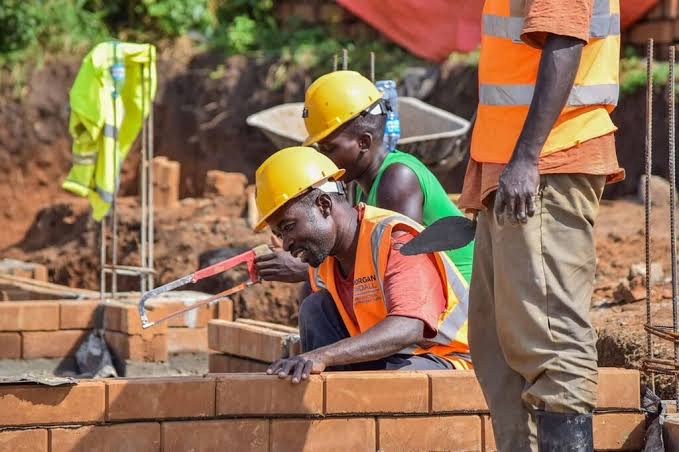The Registrar of the High Court Civil Division, Simon Kintu Zirintusa, has called for stronger collaboration between the Judiciary and the Ministry of Labour to simplify and streamline the process of claiming workers’ compensation in Uganda.
He made the remarks while speaking at the Workers’ Compensation Conference organised by Enabel, the Belgian Development Agency, in Kampala.
The hybrid conference brought together stakeholders from government, the private sector, and civil society to discuss ways of improving the country’s workers’ compensation framework.
Zirintusa emphasised that many Ugandan workers remain unaware of their rights under the Workers Compensation Act, leaving them vulnerable when they suffer injuries or illnesses in the course of employment.
“Many workers don’t know they are actually entitled to compensation,” Zirintusa said. “Section 13 of the Occupational Safety and Health Act places a duty on every employer to protect their workers as far as is practicable, especially against injuries sustained in the course of work.”
The Registrar explained that the law places a greater obligation on employers to ensure workplace safety. Under the Workers Compensation Act, both the government and private sector employers are required to compensate employees for injuries or diseases acquired while on duty.
He noted that the Government of Uganda itself is the country’s first employer and therefore liable for claims made by public servants who sustain injuries in the line of duty.
“We once had a case of a Chief Magistrate who was almost killed while visiting a land dispute. The government had to handle his treatment and compensation,” he recounted.
The Act applies to all forms of employment within Uganda, including those hired by individuals, partnerships, and associations. Employers are also mandated under Section 18 to insure themselves against potential liabilities arising from workplace injuries.
Zirintusa clarified that compensation is payable for any personal injury by accident arising out of and in the course of employment whether or not the employee was negligent at the time of the incident.
“The law presumes that once a worker is injured while at work, the injury arose out of employment unless proven otherwise,” he said. “Compensation covers not just accidents but also occupational diseases.”
He added that dependents of deceased workers such as spouses, children, and parents—are also entitled to compensation if they can prove direct dependence on the worker’s earnings.
Despite these legal provisions, Zirintusa acknowledged that many workers face serious challenges accessing justice due to procedural barriers, limited legal aid, and lack of awareness.
“The process is supposed to be very simple,” he said. “But when a worker disagrees with the employer on the compensation amount, they often need a lawyer to file a case something many can’t afford.”
He called for standardised claim forms that workers can easily fill out and submit to magistrates’ courts without requiring legal representation. Simplifying this process, he said, would help ensure that injured or sick workers receive timely justice.
Zirintusa explained that magistrates’ courts are the primary venues for hearing workers’ compensation disputes, given their widespread presence across the country.
Appeals from these courts can be made to the High Court but only on points of law, not on matters of fact such as the extent of injury.
He also highlighted the Judiciary’s recent efforts to automate case filing, which now allows online registration and payment of prescribed fees for claims.
To improve the compensation system, Zirintusa proposed closer collaboration between the Judiciary and the Ministry of Labour, the development of specific court rules for handling workers’ compensation cases, training of magistrates through the Judicial Training Institute, and increased use of mediation to resolve disputes amicably.
“In labor-related cases, mediation can be the best approach,” he said. “It saves time, reduces costs, and ensures that injured workers receive the justice they deserve.”
He concluded by reaffirming the Judiciary’s commitment to protecting workers’ rights and ensuring fair, efficient handling of compensation claims.
“Workers’ compensation is not just a legal right—it’s a matter of dignity,” Zirintusa said. “Every Ugandan worker deserves to feel protected in the course of their duty.”


